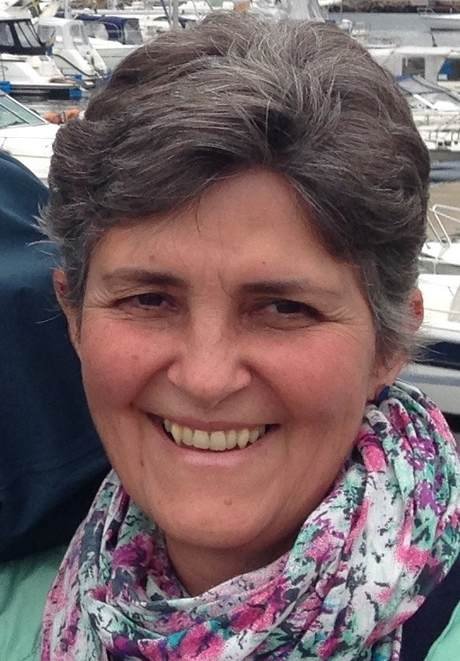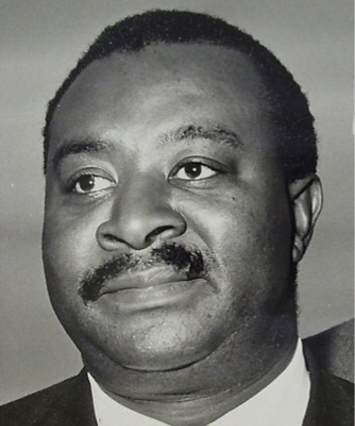Meeting a black South African leader gave Meryl a vision for what she could do for her country.
That God could communicate thoughts into my mind in this day and age was a new idea to me. I had grown up in a Christian family and been confirmed in the church but the concept that one could get definite direction from one's inner voice was new to me. It was something I thought had only happened to the prophets in the Bible.
My first attempt to give that time of quiet a chance was when I was 18 years old. I was at a conference in a mountain village called Caux, Switzerland, along with hundreds of others. One of my roommates suggested that I might look at my life in the light of absolute moral standards–absolute honesty, purity, love, and unselfishness. This set me on a journey. I had some very clear and simple thoughts – and they would not have been from me because they were not things I would have willingly wanted to do.
- Be honest with my parents, especially my father about stealing his cigarettes.
- Write to a geography teacher about cheating in two of her exams.
- Live without worrying about what others thought of me, especially my peers.
It was a freeing experience and started me on a road where I wanted to live within God's will and not my own (although not always getting it right).
About six months later my boyfriend suggested that we needed to see if God's will was at the centre of our relationship. I was angry. I did not want to lose him. I fought with God and refused to listen, just in case it was something I did not want to hear. This went on for a week. Eventually, it was like playing tennis on your own and you had hit all the balls to the other side of the court. I went on my knees and asked God to show me what He wanted. As clear as anything I had the thought 'Leave him (my boyfriend) along with your heart and your will and I will look after your futures.' We broke up.
At the same time, I felt that I was being called to give up my place at teacher's training college and work full-time with Moral Re-Armament (MRA), now called Initiatives of Change (IofC). This I did and it took me to work at an MRA conference centre in England for nearly two years and three and a half years in South America.
While at Tirley Garth, an IofC center in the northwest of England, a delegation of black and white South Africans visited. One of the group was a medical doctor, Dr William NKomo who had played a part at the beginning of the African National Congress Youth League. Not very long before his visit to England and Northern Ireland, he had had the humiliating experience of being hit in the face by a white policeman for a minor traffic offense. This had caused him to go blind in one eye. I was very afraid of meeting him, feeling that he would blame me along with my race for what had happened to him. However, I was invited to have a meal with him and other South Africans present and was seated right next to him. I said nothing during the whole meal. At the end of the meal, he turned to me and, like a caring father, he said, 'The answer for South Africa will come from people like you who are willing to fight hard and are not afraid.' In the years to come, back in South Africa trying to live to make a difference while under the Apartheid system, these words were often a much-needed encouragement.
Five years after breaking my relationship with my boyfriend, God prepared us both for marriage (even though we were at that stage on two different continents). I had a letter of proposal from Pieter, my husband-to-be and we were married six months later. This was more than four decades ago!
Among many other adventures and challenges in our married life, we were asked to help with the IofC programme 'Action for Life' in India for four months. What a stretching experience that was.
During that time I had a request from a friend to consider becoming a Montessori pre-school teacher in my hometown in South Africa. After much soul searching and consultation with family and friends, I felt God nudging me with the thought, 'You gave it up for me (becoming a teacher) all those years ago. Now I am giving it back to you.' So in my mid-50s I started studying. My nine years working as a preschool teacher were very rewarding and I felt that it was an extension of the calling God had laid on my heart–that was to make a difference by living with love and compassion. I learnt so much from the children; one day someone outside the school asked me what the ratio of black and white children there was in the school. I could not tell her. I honestly had not noticed. They were just energetic children. This, as a South African with the Apartheid past of forced separation, was a huge thrill to me.
A further challenging experience was five years ago when I was given the shocking diagnosis that I had breast cancer. It was so unexpected with no symptoms leading me to believe that anything was wrong. Suddenly I was faced with my frailty and inevitable mortality. Since then it has been a long journey of facing fears and having to decide over and over again to trust God. It has certainly helped me to appreciate the importance of the here and now, and appreciate the love and support of family and friends.
So this has been my journey thus far–many turning points and stepping stones. What a journey it has been. I feel very blessed.
English



